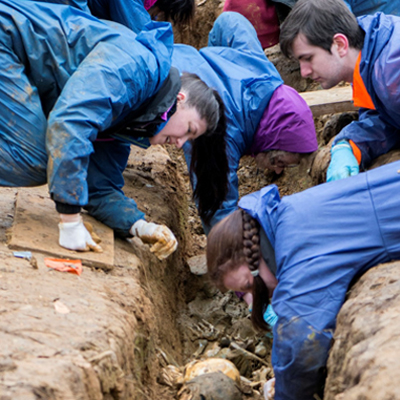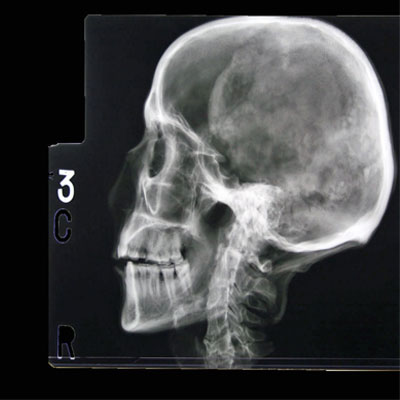Background
For some time, Cranfield Forensic Institute (CFI) archaeology and anthropology experts Dr Nicholas Marquez-Grant and Roland Wessling have been working on deployments to various European countries to assess British conflict casualties for the UK Ministry of Defence. They expanded their operations by working in partnership with the Flanders Heritage Agency in Brussels, helping them investigate German casualties.
Recently, our focus has been in partnership with the Defense Prisoner of War Missing in Action Accounting Agency (DPAA). Dr David Errickson has been working on recovering United States unaccounted individuals for their return to the US.
Our values
CRICC always works to the highest forensic standards, even when it is not technically a 'forensic' case.
When working in partnership with organisations, we are prepared to work to existing internationally published standards and are flexible in adopting protocols and standard operating procedures any other organisation has established.
Our ‘forensic’ documentation ranges from evidence and photo logs to continuity forms; everything is treated as if it were for a court of law. Both archaeological and anthropological documentation is just as meticulous. The CRICC team believe that is the least the casualties deserve.
While the team is keen on sharing their experiences, they are also aware of rules and etiquette regarding the sharing of information of this nature and the display of human remains. CRICC will therefore not include sensitive details of their deployments, such as number of casualties, countries of origin or the conflict they fell in, unless expressly permitted or if it is for other reasons acceptable to all involved.
We will not show human remains in photographs; they will always be blurred or removed from all images. However, we pride ourselves on our openness and when information is ready to enter the public domain, we will happily share it.
Our aims
The CRICC team provides high-quality, professional and efficient recovery and identification services to organisations dealing with conflict casualties.
Cranfield Forensic Institute formed the CRICC team with the aim to:
- Recruit a cohort of trained and proficiency tested on-call members who can deploy as and when needed;
- Establish contracts or memorandums of understanding with clients or organisations who are interested in its services;
- Be willing to adapt to other organisations’ protocols and standard operating procedures when working on their operations;
- Supply excavation, site investigation and human remains analysis services;
- Supply advice, training and capacity building to countries or regions in need of forensic science services:
- Supply our services in a confidential, professional and efficient manner.
Our skills
CRICC’s expertise and skills include:
- Archaeology;
- Anthropology;
- DNA sampling;
- Photography;
- Surveying (optical and geophysics);
- Recording and documentation (including 3D reconstruction);
- Analytical analysis (i.e. micro CT, microscopy etc);
- Ballistics and explosives analysis;
- Logistics.
CRICC team members
If you would like to be involved in volunteering or working with CRICC please get in touch with the admin team at CRICC@cranfield.ac.uk, or email Dr David Errickson at david.errickson@cranfield.ac.uk.
Volunteers are advised to send their CV when supplied with their volunteer application form to the above email address.




